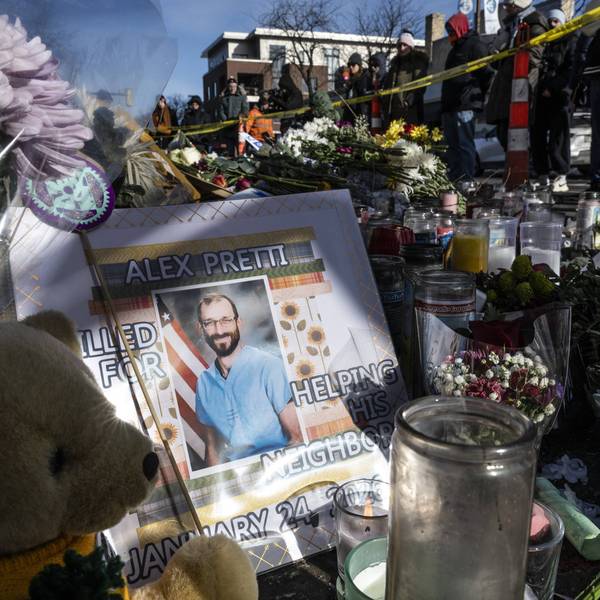News coverage over the past 48 hours of the Orlando nightclub attacks has shown how corporate media use specific vocabulary to manipulate public perceptions and perpetuate harmful stereotypes and xenophobia.
In the early hours of June 12, as reports poured in about a shooting at a gay nightclub in Orlando, news outlets were reluctant to characterize the incident beyond calling it an act of violence.
With little information beyond "a shooting has left a number of people of dead in a nightclub," the Twitter accounts of major media outlets used the contextually neutral language of "shooting" to describe the situation:
- ABC News, 4:34 AM, June 12: "NEW PHOTO: Multiple injuries following shooting at Orlando nightclub, say police"
- Boston Globe, 6:06 AM, June 12: "UPDATE: Orlando police call the scene of a nightclub shooting a "mass casualty situation"
- Wall Street Journal, 8:45 AM, June 12: "Orlando police: shooting at gay nightclub kills 20, wounds 42"
- Reuters, 9:50 AM, June 12: "FBI briefing on Orlando nightclub shootings that killed 20, wounded 42 delayed."
It's important to note, however, that early in the morning law enforcement had already alerted the media and the public to the fact that they were treating the event as an act of terror. ABC News reported as much at 7:42 AM, tweeting, "Police: Investigating Orlando nightclub shooting as an 'act of terrorism.'" Yet there was no move to label the event as such by mainstream media sources until the shooter's ethnicity was revealed--at which point the language began to change.
Once the shooter was identified as Omar Mateen, a US citizen of Afghan descent, the narrative changed. After this South Asian ethnicity was revealed, news media began calling the attack an act of terror. At 9:01 AM, CBS News tweeted: "JUST IN: Orlando nightclub shooter ID'd as Omar S. Mateen, law enforcement sources tell @CBSNews." Just ten minutes later, the way CBS was discussing the crime had changed: "Authorities 'leaning towards Islamic terrorism' as motive, @CBSNews' Pat Milton reports:"
Over the next couple of hours, the new descriptor spread throughout corporate media:
- CNN, 9:57 AM, June 12: "Authorities say they consider the Orlando mass shooting an act of domestic terror"
- New York Post, 10:10 AM, June 12: "'Radical Islamic terrorism' is being eyed in the Florida gay nightclub rampage"
- Orlando Sentinel, 10:28 AM, June 12: "50 dead in nightclub terrorism attack, state of emergency declared"
- New York magazine, 10:41 AM, June 12: "Suspected terrorist attack on Orlando gay club leaves 50 dead, 53 injured"
- Fox Nation, 11:42 AM, June 12: "'An Act of Terrorism': As Many As 50 Shot Dead, 53 Wounded in Possible Islamic Terror Attack at Nightclub"
Glenn Greenwald asserted in June 2015 that "terrorism" is "a completely malleable, manipulated, vapid term of propaganda that has no consistent application whatsoever." Greenwald was writing in response to the Charleston church massacre and the news media's unwillingness to call that event an act of terror.
But it's quite obvious that for today's news media, the vocabulary of "terrorism" does have a consistent application: It means, overwhelmingly, acts of violence committed by Muslims and seen as targeting the West--as many media confidently portrayed the nightclub attack, although that narrative may become more complicated as details of Mateen's life and the massacre itself emerge.
For an example of that double standard of terminological application, consider the events that unfolded only hours after the Orlando attack.
As the nation reeled from the nightclub shooting, law enforcement in Santa Monica arrested a heavily armed Indiana man headed to the LA Pride parade. James Wesley Howell was quickly identified as a white man, distanced from the Orlando attacks, and treated very differently by the news media:
- The LA Times reported that "Santa Monica police spokesman Saul Rodriguez said detectives are "not aware of what the suspect's intentions were at this point."
- The Daily Mail said that while Howell's car was filled with "three rifles, a substantial amount of ammunition and 5 lb of mixed Tannerite powder, which can be used to make a pipe bomb," and while Howell was "on the way to the LA Pride event to meet a friend, and 'wanted to harm' people there," authorities "were still trying to establish Howell's motives."
In fact, Howell's ethnicity and lack of ties to the Orlando shooting and Islam made his potential attack a non-story, despite him being heavily armed and ready to cause the same levels of carnage as Mateen. Social media accounts for major news organizations outside of LA almost exclusively referred to Howell as a "heavily armed man," and most organizations mentioned his arrest only once on social media, if at all:
- Wall Street Journal, 2:36 PM, June 12, only mention: "Man with weapons, explosive material arrested in LA, said he was planning to attend Pride parade"
- ABC News, 5:02 PM, June 12, only mention: "Heavily armed man arrested in LA tells police he was in the area for city's gay pride parade"
- Reuters, 6:53 AM, June 13, only mention: "Heavily armed man arrested on way to LA gay pride parade"
- Boston Globe, 4:13 PM, June 12, one of two mentions: "Heavily armed man arrested in California was headed for pride parade"
When those who wish to use violence against innocent people are unidentified, they are referred to as "shooters" and their attacks as "attacks" or, in the case of Orlando, as "shootings." It's not until the perpetrators are identified as non-white people with an otherized cultural background that the media uses the word "terror."
This manipulation of language by news media has shown quite clearly that the term "terrorism" refers not to the acts themselves, but rather to the ethnicity and specifically defined ideology of the perpetrators of the attacks.



